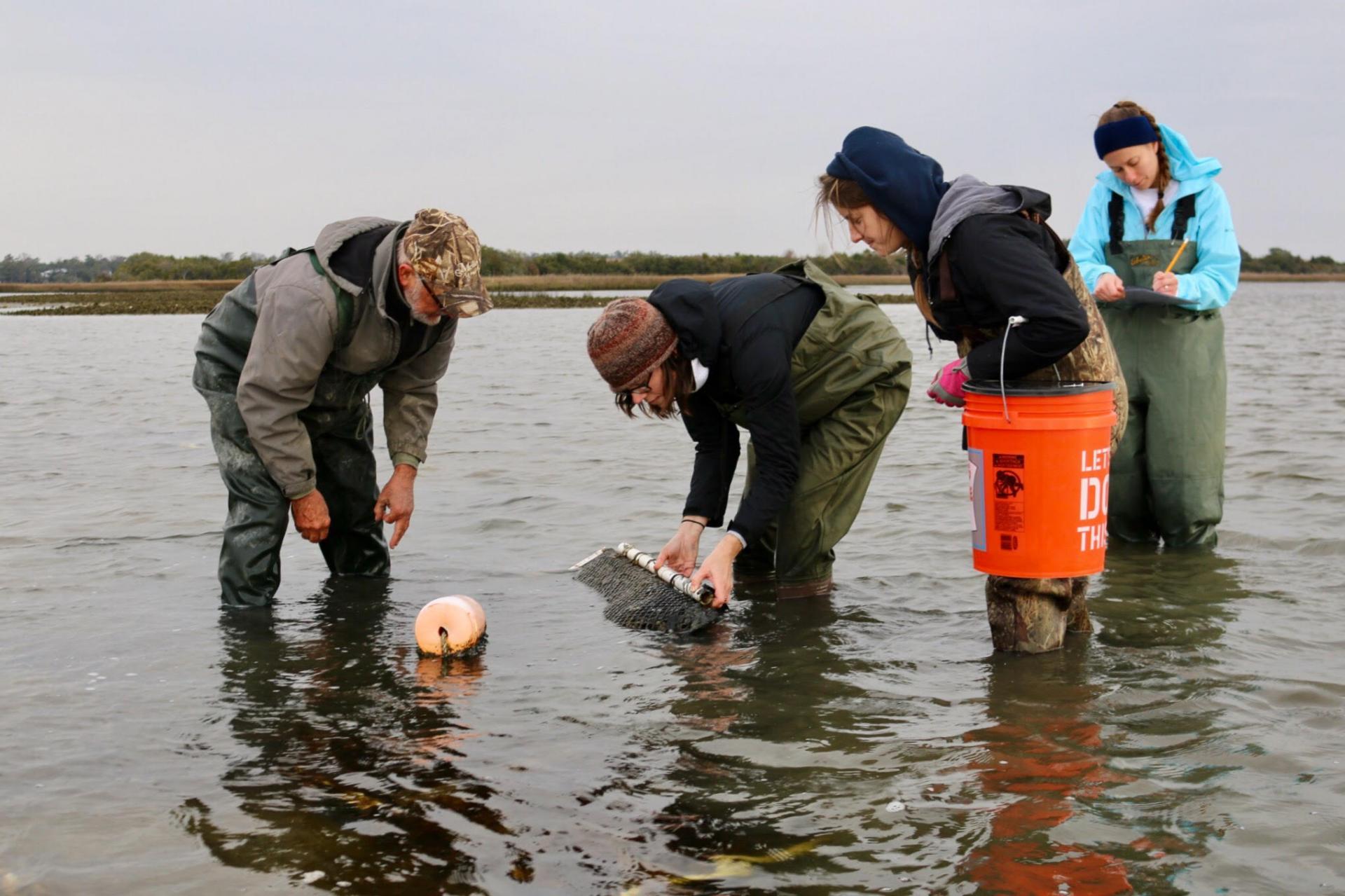Evaluation of the Ecosystem Services of Shellfish Culture Operations in North Carolina
Evaluation of the Ecosystem Services of Shellfish Culture Operations in North Carolina
Evaluation of the Ecosystem Services of Shellfish Culture Operations in North Carolina
Program: NERRS Science Collaborative
Program details » | All NERRS Science Collaborative projects »

Why this work?
The North Carolina National Estuarine Research Reserve is interested in better understanding the potential impacts of shellfish cultivation on wild shellfish resources. While ecosystem services provided by wild oysters, such as water filtration and nutrient cycling, are often also attributed to shellfish farming, recent siting of shellfish farms in a coastal reserve has raised some concerns for resource managers. North Carolina’s shellfish aquaculture industry has been small but stable for over 30 years; however, current legislative changes are aimed at creating the potential for rapid growth. The southern portion of the North Carolina coast has consistently provided more than 50 percent of the wild harvest in the state, which has contributed to the interest in creating oyster farms throughout the region.
About this project
This project will assess the ecosystem services of shellfish farming by measuring impacts of newly established farms in the North Carolina Research Reserve. Because there is an opportunity to assess conditions before farm installation, North Carolina estuaries provide an ideal place to measure these effects. Two years of intensive sampling in and adjacent to oyster farms, concentrating on wild shellfish resources and the physical and chemical environment, will aim to link small-scale changes with larger-scale ecosystem-level alterations. Coastal managers, state agencies, and shellfish farmers will provide input throughout the course of the project to ensure that the study parameters align with decision-making needs. The project will culminate with the production of visualization tools and models to allow resource
managers, culturists, and reserve staff members to make better decisions when determining the locations and scales of shellfish farming operations.
Project lead and contact
Dr. Elizabeth Darrow, University of North CarolinaWilmington
Email: [email protected]
To learn more, view the project fact sheet (PDF).